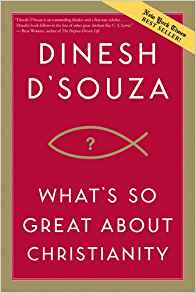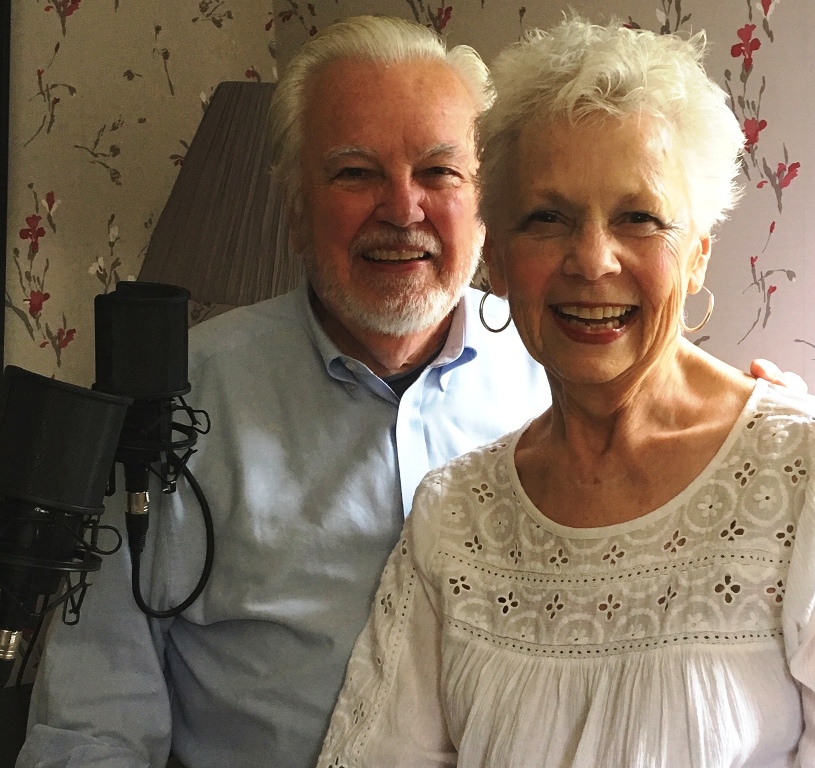Why Are the Children of the World Doing So Much Better?A report came across my desk recently about Save the Children, a humanitarian organization that concentrates its efforts on improving the state of children worldwide. Remarkably, this group documents surprising progress among this demographic: “Some 44 million fewer children are stunted by malnutrition today compared with 2000; 115 million fewer children are out of school today; 94 million fewer children are now forced into work; and there are 11 million fewer child brides today compared with 2000.” This is a massive reality; good news, certainly, for any of those who love children and for those of us who care about the sorrows of the world, and about the effect of deprivation and poverty and ignorance on mankind. How, exactly, was this extraordinary improvement stimulated? The Christian Science Monitor (a must-read in our family due to its moral editorial policy and its emphasis on what is happening to improve
the woes of society and the wounds of the world) lists several areas as
causative factors. “While economic growth has been important, much of
the progress was driven by government policy and a range of investments
that raised living standards and safety for children in some of the
world’s poorest countries.” In addition, the
worldwide emphasis on empowering women to advance to positions of
influence in society by educating girls, for instance, or providing
family planning tools and contraceptives for the poorest of the poor
has placed many women in roles who then are able to activate advantage
for other young girls and young women. What
caught my attention, however, in this report was the fact that one of
the biggest contributors to children’s growing well-being was the
signing of the global agreement in 2000 called the Millennium
Development Goals; these were 8 propositions that brought wealthy and
underdeveloped countries together in a pact to effect world improvement. This is only my eighth Soulish Food this year; my portfolio has been filled with assignments from a faith-based international development organization to write so-called “Articles of Authority” about crisis systems of the world. So I have turned out five highly researched papers with many citations—papers equivalent to the work a grad student might put into a doctoral dissertation. These include topics such as: “When Great People Have Great Flaws” (a look at the dark night of the soul of Mother Teresa of Calcutta), “Clean Water” (an examination of the world water crisis) and “One Hundred Million Missing Women.” All of these were brain-busters, but the learning curve for me was welcome, since I served for 8 years on the Board of Directors of a faith-based world-development organization. The learning I did enriched the life-path I had already been trotting along. In the research I conducted on malaria, partly related to the Millennium Development Goal #6 of eradicating the disease worldwide—“to combat HIV/AIDS, malaria, and other disease”—I stumbled across a historical and basically buried incident that really answers the question posed by this Soulish Food—“Why are the children of the world doing so much better?” It appears that in the 1960s and ‘70s, the Christian Medical Commission (CMC), established through the World Council of Churches (WCC), worked with the World Health Organization (WHO) to develop what became a Christ-centered theology of the meaning of health as demonstrated by our Lord when He walked on our Earth, which was also informed by a theology of the Kingdom of God—Christ’s major preaching theme. Matthew
Bersagel Braley recounts that the CMC and WHO worked together out of
their headquarters in Geneva, Switzerland, seeking to address many of
the deficiencies in health treatments that were (and still are) growing
due to modern Western medicine’s rapidly increasing dependency upon
expensive technologies, both diagnostic and curative, unavailable to
huge population groups. Braley’s abstract examines the interaction of these two organizations working together: “What follows was a theologically informed [emphasis added] shift from hospital-based tertiary care in cities, many in post-colonial settings, to primary care delivery in rural as well as in urban settings.” If you know anything about the dilemma of health systems worldwide, you will understand that this was a revolutionary shift, to say the least. In two earlier world consultations in Germany, Tübingen I and Tübingen II, a theology of health had been developed that eventually culminated in an understanding that the ministry of Christ demonstrated a “breaking into human life of the powers of the Kingdom of God, and of the dethroning of evil.” The further implication of this to these theologically informed thinkers was that the “priesthood of believers” referred to in Scripture was really a “priesthood of healers.” In effect, that means all who follow Christ should be active in bringing healing to the body, soul and mind, and to the communities in which individual believers live and function. Health was also defined as the ideal that God desired for the people of the earth, one that will probably not be achieved completely, but will have periodic breakouts in and throughout time. Health was seen not simply as the “absence of disease” as defined traditionally by the medical establishment, but as the presence of ecological health, harmony within the community and at one-ness within the individual and in his/her relationships with others. It was the presence of peace and a lack of warfare; it was an insistence and concern that the neglected, the poor, the oppressed should be given preferential treatment [emphasis added] because of the systemic unfairness and lack of parity and often true evil exercised by the powerful over the powerless. So pay attention. Pay attention with all your might. This theological premise informed—totally
informed—the United Nations’ Eight Millennium Development Goals, which
have been credited with improving many of the conditions of the
impoverished, destitute and underprivileged of the world. It is the
basic driving rationale beneath those concepts. Those goals are: Given
that many of the MDGs were met, or nearly so, and the fact that the
United Nations declared this international effort “the most successful
anti-poverty movement in history,” which it is, such as it is, success
is still also a much more daunting task than the optimistic planners
imagined. Since 2015, the MDGs have morphed into the United Nations’
Sustainable Development Goals with 17 points and a target
accomplishment date of 2030. And why is that, exactly? Well, it’s just hard to create a peaceable, equitable, egalitarian world-system that dignifies the life of every human on the planet. Huge progress has been made; the fact that we have healthier children worldwide is one evidence of that. Gender disparity goals in education are being reached, new infection levels were halved, and the world did reach the goal on access to safe drinking water. However, unprecedented weather patterns, donor fall-off, rising conflict that caused unanticipated migration patterns, the lack of high-level technology in many places for data gathering—all these and more defeated the overly optimistic intents of the global planners. We look forward to seeing, those of us who pray and watch over the world with compassion and concern, to what the Sustainable Development Goals achieve. Yet, in my heart, whenever I wobble as to the impact of Christian faith in this increasingly secularized, increasingly globalized world, I remember Tübingen I and II and the Alma-Ata conference where the MDGs were framed and published. I remember in these time in these places with these particular persons, Christian theology informed the deep passion and good intents of the world’s humanitarians, and I take heart. I take heart and wonder about all the other times, now hidden from history’s memory, when faith has made the world (often the whole world) better—much, much better. I take heart; I take heart. Why are the
world’s children doing much better than in 2000? I have a satisfying,
deeply satisfying answer to that question. Do you? NOTICESPodcastingDavid & I feel very led to begin podcasting (one of the 60,000 podcasters). After 20 years in the recording studio, producing daily broadcasts timed to exactly 12 minutes and 30 seconds, and after having to raise some $10,000 a day to pay radio airtime and the salaries of 55 support staff, podcasting is a dream. We can podcast as often or as little as we want. There is no time restraint. The podcasts, once a platform is chosen, are archived, and if anyone really wants to binge, they can listen to a David and Karen Mains podcast whenever, wherever and however they choose. The podcasting equipment has been supplied by a dear friend who has always supported our endeavors and has helped to sustain our ministry. We are just waiting for vacations and summer travel to end before we start recording. You certainly will be informed of how to listen to or take down the show, which we are naming Before We Go... What basically is needed, we are told by specialists, is content and product. Well, content is no problem—all our interviews from the radio broadcast The Chapel of the Air, as well as all the 50-Day Adventure plans and the spiritual-growth tools and some 40 books we’ve written, are waiting to be utilized. None of them have to be developed. We will need funds, however, to leverage Before We Go
into the social-media environment, to pay for excellent social-media
consultants and hire some specialized part-time staff. I’ll be putting
some foundation grant funding proposals together to send out in
September. However, if you could send an end of the summer check, that would be MOST helpful in this launch. For any gift of any size over $20, we would be happy to say thank you with any of our books: The God Hunt, Open Heart, Open Home, Friends and Strangers, Soul Alert, etc., etc. You can check out my webpage for additional titles: http://karenmains.com/books Address is: Mainstay Ministries, Box 30, Wheaton, IL 60187. |
 Karen Mains The children of the
world have evidently benefited and in some places thrived because of
this little-known but crucially important fact, that a Christian
theology, the very Gospel of Jesus Christ, informed the global
partnership that sought to make the world a better place.
BOOK CORNER
 What's So Great About Christianity by Dinesh D'Souza Without a doubt, one of the best books I’ve read this year is Dinesh D’Souza’s best-seller What’s So Great About Christianity?
I don’t regularly say this, but it is a MUST-READ for every Christian
concerned about the secularization of our society. I have made
highlights on practically every page of the book. |
